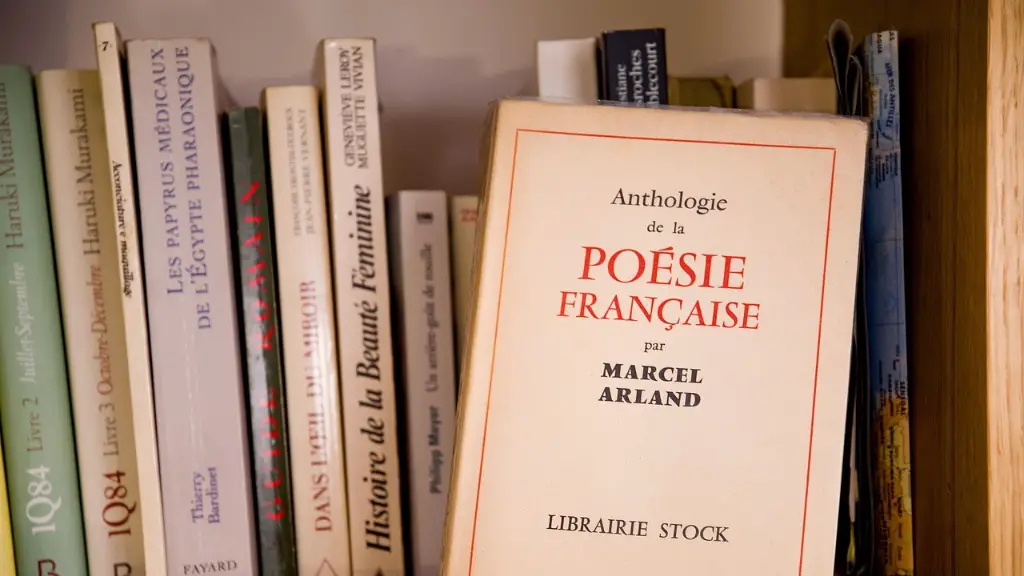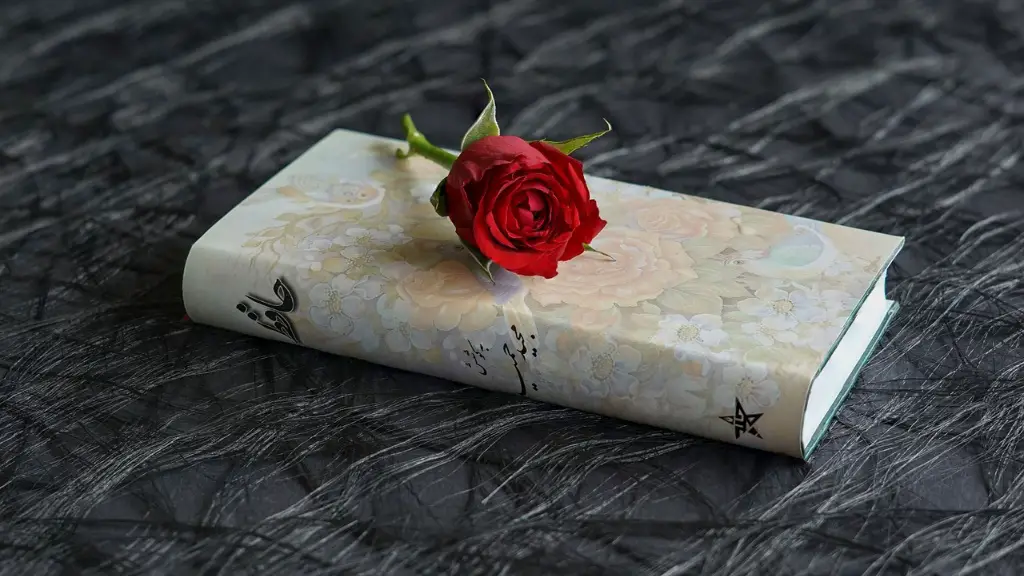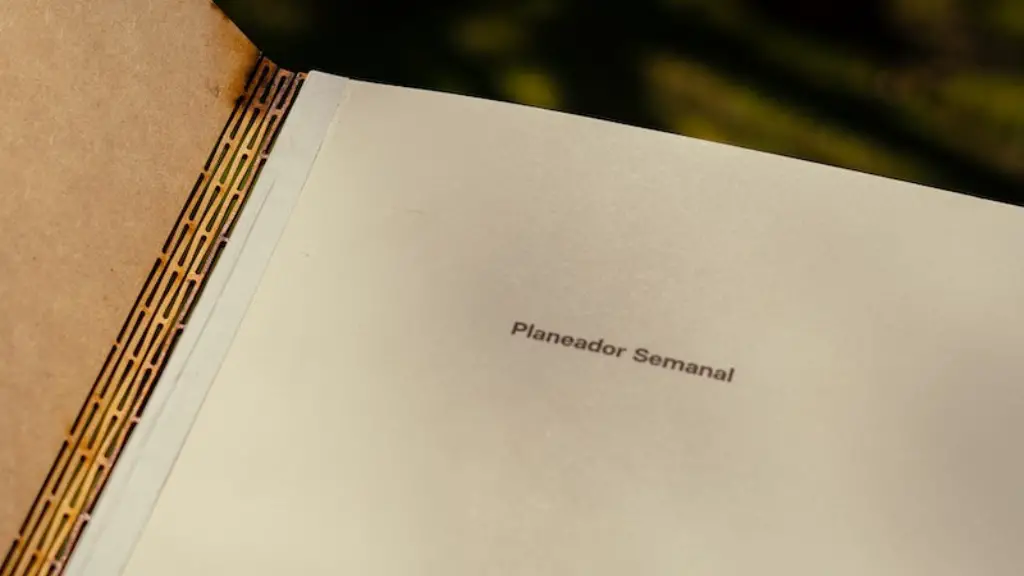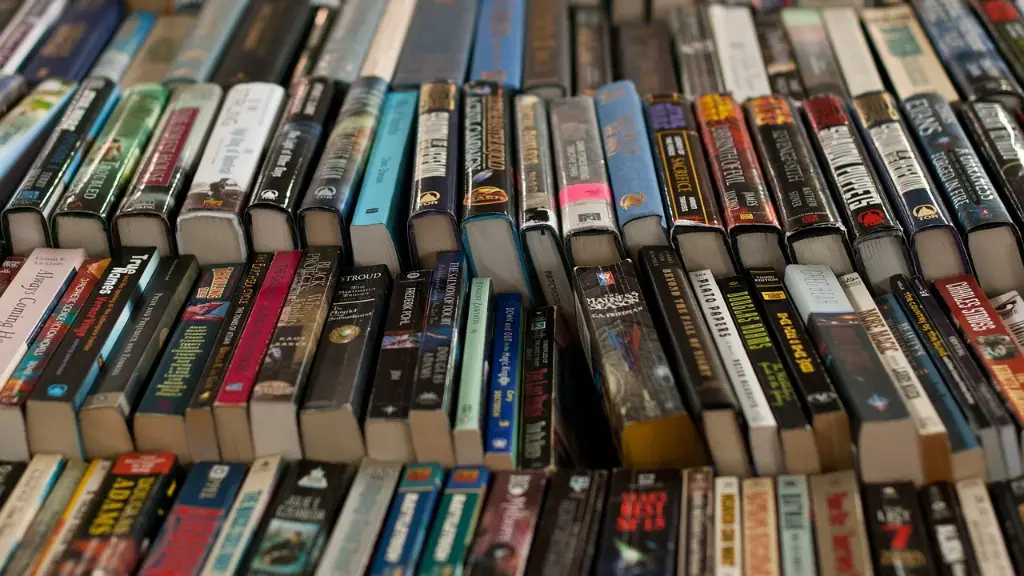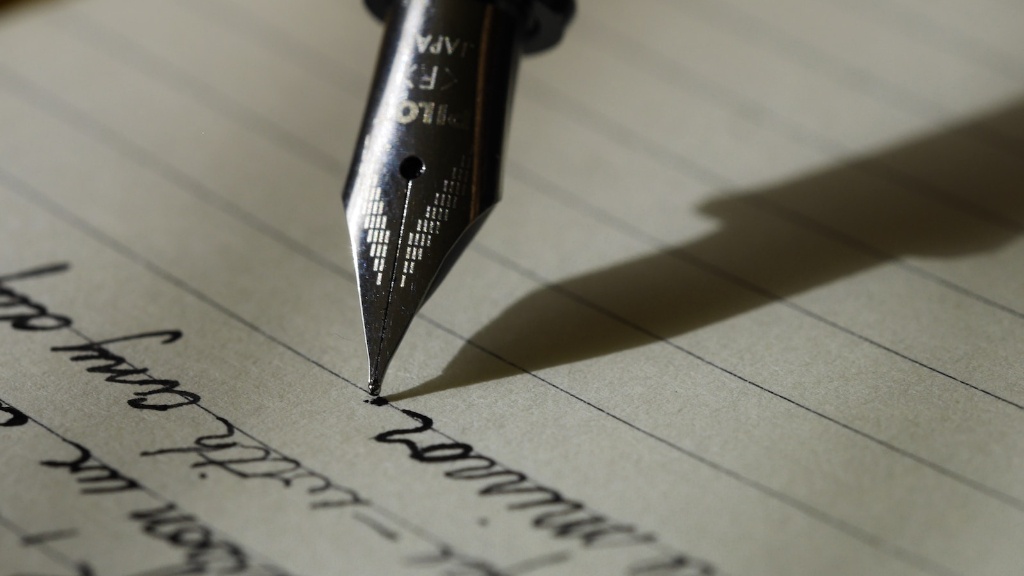An allusion poem is a type of literary work that can have a great impact in the world of poetry. Allusion poetry is a popular form of contemporary poetry that stands out from other forms of writing due to its emphasis on references and symbols. In this type of poetry, an author may refer to objects, figures, or events in his or her work while making subtle connections to a body of knowledge or an aspect of experience. Allusion poetry is a powerful way to convey ideas and emotions in a striking, yet delicate way.
An allusion poem may be inspired by the history, mythology, literature, philosophies, religious texts, and beliefs of many cultures and religions. For example, a poet may refer to the Bible to make a point or a philosopher’s views on human nature to draw a connection between their work and the overall culture. The allusions can also extend to objects, both real and imaginary, and encompass various mythological figures, literary characters, and metaphysical concepts. Furthermore, the allusion poem often includes allusions to other types of poetry, as well.
One of the unique characteristics of allusion poetry is the way in which it incorporates references in a subtle way. In other types of poetry, references may be more obvious or they may seem clunky and forced. Allusion poetry allows the poet to make their point without directly stating it in words. In this way, the reader is able to gain insight into the poet’s thought process and the background knowledge that shaped it. This allows for a deeper and more meaningful experience with the poem.
An allusion poem is typically full of imagery and symbolism. Instead of relying on words to convey a certain feeling or concept, the poet paints a vivid picture through allusion to evoke a strong emotional response from the reader. The poet is often utilizing the power of suggestion and creating a unique journey for the reader in which multiple meanings and interpretations can be explored. Allusion poetry is an art form that encourages readers to think outside the box and Question the conventional wisdom.
An allusion poem is meant to be read and interpreted on many different levels. The poet is attempting to create a deeper and more meaningful experience by inviting the reader to explore the poem’s hidden meanings and implications. In this way, the poem has the potential to leave a lasting impression regardless of the reader’s background knowledge and predisposition. Allusion poetry is a powerful form of writing that can both entertain and educate the reader.
Different Types of Allusion Poetry
Allusion poetry has many nuanced forms and styles. Some poems may take a more lighthearted approach, making subtle references to events, figures, and objects that may be familiar to the reader. Other forms may be more serious, with the poet alluding to the feelings, thoughts, and reflections of a specific culture. No matter the form, allusion poetry will always strive to evoke a certain emotion in the reader that ultimately has the power to spark meaningful dialogue and reflection.
One example of allusion poetry is found in the works of the British poet W. B. Yeats. Yeats is famous for incorporating numerous allusions to Irish folklore, historical figures, and spiritual deities in his work. His allusions to the gods of classical mythology, such as those found in Metamorphoses, offer an insight into the human condition and the emotions that often shape our actions and beliefs.
Another type of allusion poetry is found in the works of George Gordon, Lord Byron. He was known for alluding to various literary figures and heroic stories from antiquity, such as Prometheus and Euphorion. His work often includes mysterious references and symbols, which hint at darker and more complex conversations taking place beneath the surface.
Lastly, there is a form of allusion poetry found in works of the Romantic period. This period in poetry saw poets such as Percy Bysshe Shelley and John Keats referencing the natural beauty of their surroundings in a way that captures the imagination and speaks to a deeper understanding of the human experience.
An Allusion Poem’s Impact
Allusion poetry plays an important role in the world of literature, as it encourages the reader to think critically and look beyond the obvious. This type of poetry gives the reader the opportunity to explore deeper meanings and implications while staying open to the possibility of connecting to something on a spiritual level. By making allusions to figures, events, and objects in their work, poets are able to create a poem that stands out from other forms of writing and leaves the reader with a truly unique experience.
Allusion poetry has the power to capture the imagination and take the reader on a journey to explore the different aspects of the human experience. By incorporating references and symbols, the poem is able to create a lasting impression and evoke strong emotion in the reader. Allusion poetry is an art form that can expand the minds of its readers and open doors to greater understanding.
Significance of Allusion Poetry
Allusion poetry has the power to inspire its readers in a way that other types of literature cannot. This type of poetry encourages readers to connect with each other and embrace different points of view. By citing or referencing familiar objects or figures, this type of poetry is able to capture the attention of its readers in a way that draws them closer to the poem’s message. Allusions can also be used to open up conversations around certain topics and spark meaningful dialogue.
Allusion poetry is one of the most meaningful forms of literature in terms of its potential to shape and impact the world. By subtly referring to events, figures, and objects in their work, poets are able to educate their readers while still maintaining an air of mystery. Allusion poetry speaks to the heart and mind in a way that encourages its readers to open their minds and explore different perspectives.
Techniques of Allusion Poetry
Allusions are a powerful tool for poets to use in their writing. By referencing real-life figures, events, and objects, the poet is able to create a connection in the reader’s mind between the text and the referenced material. This allows the poem to contain more depth and the reader to explore different aspects of the poem.
In addition to using direct references, some poets may also use metaphor and simile in their allusions. Utilizing these forms of figurative language can enhance the allusion by taking an object or figure and comparing it to something else. This gives the poet an opportunity to paint a vivid picture and create a powerful allusion.
The poet must also consider context when making allusions. A reference to kings or gods in historical literature may be interpreted differently in contemporary literature. Therefore, the poet must take care to consider the cultural context of their work and the intended audience in order to ensure that their allusions are both accurate and meaningful.
Conclusion
Allusion poetry is a powerful form of writing that continues to have an impact in the world of literature. By referencing or citing familiar figures, events, and objects, the poet is able to create a deeper and more meaningful experience for the reader. Furthermore, this type of poetry gives the reader the chance to explore the poet’s thought process and relate to the poem on an emotional level.
Allusion poetry is an art form that has the potential to shape and inspire the world. By alluding to figures, events, and objects from different cultures and concepts, poets are able to evoke strong emotion in their readers and invite them to explore different perspectives. Allusion poetry is a powerful tool for expanding our understanding of the world and the human experience.
